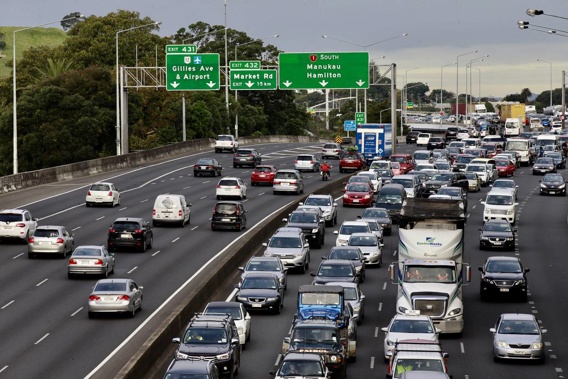
Auckland motorists will be stung with an 11.5-cent per litre fuel tax after the local council signed off the controversial move.
Auckland Council agreed to the tax at a meeting today. The price rise will start in July and can continue for a maximum of 10 years.
The tax is expected to raise around $150 million a year.
Earlier today Auckland Mayor Phil Goff said National Party leader Simon Bridges' policy of overturning the regional petrol tax was merely what people said in opposition.
READ MORE: Leaked email lifts lid on BP's petrol pricing strategy
READ MORE: Calls for more transparency from petrol companies
"I would be very surprised if any future government took away, effectively, $4.3b of funding without suggesting where that funding will come from," he said.
The regional fuel tax was expected to raise $1.5 billion over 10 years but with government subsidies and other funding sources leveraged to $4.3b of spending on transport, he said.
"Oppositions often say things at the time but come around to accepting that the new status quo actually does make sense and I think the National Party would find that as well," Goff said.
In his first economic speech as leader on Monday morning, Bridges said National would overturn the coalition Government's regional fuel tax, should it get into power in 2020
Labour announced plans earlier this month to introduce a fuel tax of between 9c and 12c per litre over three to four years to pay for its 10-year transport plan. It was set to come into force in July.
Bridges said this morning the tax was an unfair measure and would cost a typical Auckland family $700 a year.
However, Goff said there was a $5.9 billion deficit in the previous Auckland Transport Alignment Project (ATAP) - the joint Government-council transport programme for Auckland - which had been bridged by the regional fuel levy.
The ATAP 10-year programme announced last week was the "biggest ever" transport package at $28 billion, the mayor said
Goff said the regional fuel tax was a significant way in which the council was able to contribute towards Auckland's transport needs and a critical part of the programme for the city.
"We could do nothing and then we would have gridlock. I don't think any Government would accept that. We could have put it straight onto rates and that would mean a 13 per cent to 14 per cent rate increase.
"Clearly putting the cost on ratepayers, including the elderly who hardly use our transport system much at all, is not an equitable way of raising the money," he said.
Bridges also said he would get rid of the $3 billion Regional Development Fund led by Shane Jones.
Take your Radio, Podcasts and Music with you









